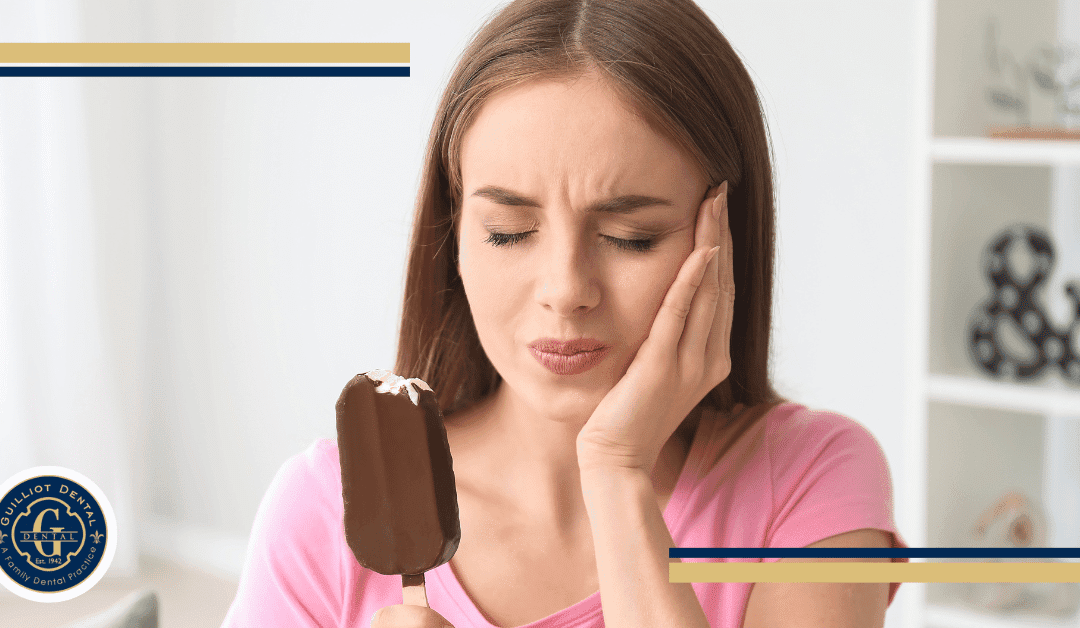Dental fillings have been around for centuries and have saved countless teeth. The main reason people get fillings is to treat cavities. This helps to stop any further damage from occurring to a tooth.
But a cavity is not the only reason a filling would be used, and there are other reasons too. So, scheduling an appointment with a caring and patient dentist to assess your symptoms will be crucial to your oral health care plan.
Top 5 reasons tooth fillings are necessary
- Cavities. If you have a decayed tooth that causes a cavity, your dentist will remove the affected part of the tooth and apply a filling. Fillings can last between five to twenty years.
- Small holes. Patients who have tiny holes in one or several teeth can benefit from a filling. These are not necessarily cavities but should be filled quickly to prevent the food and bacteria from getting into the holes. If not filled, the tooth will undoubtedly decay and can even expand.
- Fracture. Teeth can fracture for various reasons such as sporting events, a slip and fall, an auto accident, chewing on something hard, or simply aging.
- Discoloration. Some dentists apply fillings to teeth that have become discolored over time due to the significant use of wine, coffee, tea, soda, candy, and other acidic foods and beverages. Even grinding your teeth can cause discoloration.
- Gradual structure loss. A damaged tooth risks structural loss. If a structure is lost, it might be necessary to apply a dental filling to enhance support for the damaged tooth.
Dental fillings are a common routine procedure that sometimes can leave patients with sensitive teeth afterward. In most cases, the sensitivity will go away on its own between two to four weeks, occasionally longer, all dependent on the nature of the filling.
Since the dentist numbs the area around the affected tooth before filling it, patients won’t feel any sensitivity or pain until the numbness wears off. The numbness usually takes one to three hours after the procedure to subside.
Causes of tooth sensitivity after a filling
- Develop pulpitis. In rare cases, the connective tissue that forms the center of your tooth, known as the pulp, can sometimes become inflamed from the drilling that releases heat. This can cause pulpitis.
- A change in your bite. Sometimes a filling can cause the affected tooth to be taller than your other teeth making it painful to close your mouth. If this happens, contact your dentist immediately and do not force biting down because this can cause the filling to crack.
- Multiple surfaces. Having two different surfaces, such as a crown with a filling on top or the bottom of the crown, can cause pain or sensitivity when they touch.
- Circumstance of referred pain. It is common to feel pain in teeth surrounding the affected tooth.
- An allergic reaction. If you notice a rash or itching near the filling, contact your dentist immediately because you could be experiencing an allergic reaction to the materials used. If this is the case, your filling will need to be redone with a different type of material.
Experiencing any kind of pain sensation or sensitivity after a dental procedure can sometimes cause considerable discomfort, especially to the affected area. Since sensitivity and pain should ease between two to four weeks after a tooth filling procedure, what could you do in the meantime to manage the soreness?
Finding a dentist in the Broussard or Lafayette, LA area with who you can openly communicate your concerns is important to understanding your symptoms, treatments, and how to manage the aftereffects of a procedure. This can also help to avoid complications.
Ways to manage the pain and sensitivity after a tooth filling
- Take a non-steroidal anti-inflammatory drug such as naproxen or ibuprofen.
- Avoid hot or cold foods and drinks temporarily, in addition to anything acidic like wine, citrus fruits, and tomatoes.
- Chew on the opposite side of the mouth away from the tooth filled area, which is also temporary.
- Use toothpaste specially made for sensitive teeth for at least two weeks and mouthwash that contains peroxyl which promotes healing.
Keeping up with your regular dentist visits and getting the appropriate dental work performed when needed is certainly good for your overall oral health. If you are looking for a qualified and understanding dentist to schedule an appointment with for a tooth filling, contact Guilliot Dental today.
We have two locations to conveniently serve the Acadiana area better. To speak to someone in the Lafayette office, dial 337-237-1843, or in the Broussard office, dial 337-252-7333. You can also visit our website and learn about the variety of services we can provide that meets the needs of the whole family.
Let Guilliot Dental start your day off with a smile!
Resources:
5 Reasons You May Need a Dental Filling
How to Handle Sensitive Teeth After a Filling
I Just Got a Filling and My Teeth Are Suddenly Sensitive, What Should I Do


Recent Comments